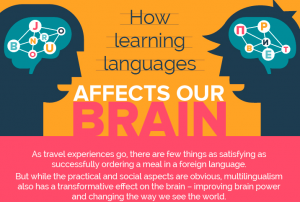Learning Languages When We’re Younger
Learning a second language is always challenging. It is possibly more efficient to learn it at an age at which you are usually more responsive to learning. It is commonly accepted that the very best age at which to learn a language is throughout infancy, since, throughout the early years, the brain is particularly configured to learn a language. This is not constrained to any specific tongue; it depends on what language the baby is exposed. this website will help you to learn the language.
Hence it follows that an English baby will simply as quickly learn its native language as a Chinese one. Heavy direct exposure to any language throughout a child’s first couple of years should, for that reason, ensure understanding of the language for the rest of their life.

This is mainly due to the systems by which people learn languages. Kids start to pick up the language by replica; to put it simply, they duplicate sounds that they hear in their environment, whether from their parents or from others around them. The sounds they make will slowly start to show the tones and phonics of the language or languages to which they are most exposed in their daily life.
As an outcome, those surrounded by 2 languages will start to interact in both. Fret about raising somebody bilingually consist of the worry that the child will end up being baffled and blend the 2 languages, possibly leading to minimized language abilities. This is seldom the case. Such a child may at first appear to be behind their peers in language abilities, by the time they are around 5 years old they will generally have captured up with their peers linguistically, whilst also being similarly skilled in 2 languages.
Complete bilingualism really is a valuable ability to have, specifically in today’s society, which is becoming significantly globalized and international. Fluency in a second language will be especially beneficial when getting the jobs of the future.
In spite of all the proof to recommend that it is best to learn a second language at as early an age as possible, some studies have revealed that grownups and teenagers, in a number of aspects, find it simpler to learn a foreign language than more youthful people. The fact that they have already accomplished complete understanding and are literate in a mother tongue perhaps implies that they can use that which they have already discovered the language in order to assist them to understand a new set of guidelines, even if simply by contrast.
Obviously, when raising a child speaking 2 languages at the same time, there is always the threat that one language will start to change the other, which will never be developed appropriately. Some scientists even recommend a threat of ‘double semi-bilingualism’, which explains a case in which the child does not end up being completely competent in either language, although events of this are uncommon.
It appears that there is no conclusive time at which it is best to learn a second language, as it depends upon the particular scenario and context. If the chance occurs, starting bilingualism as early as possible benefits serious consideration.

